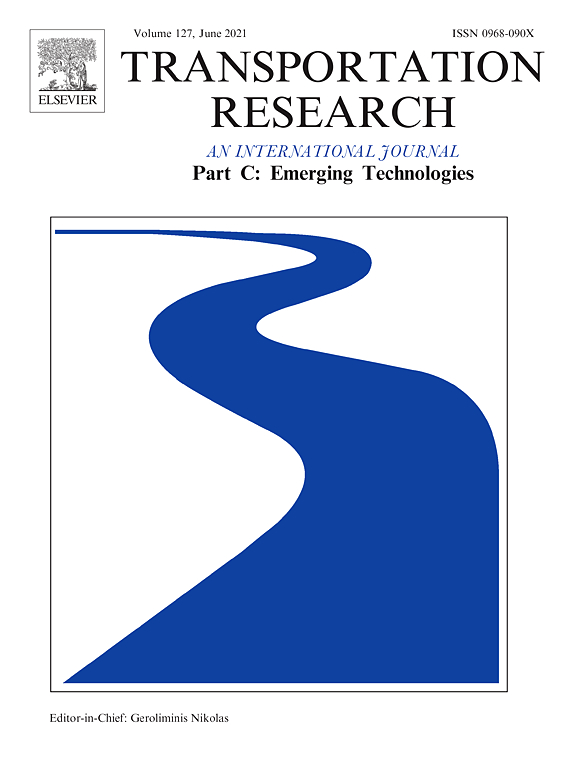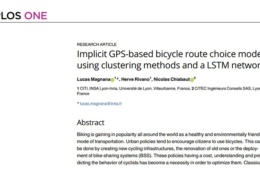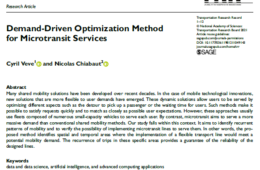Auteur(s) :
Nicolas Chiabaut
Rémi Faitout
In this paper, a new practice-ready method for the real-time estimation of traffic conditions and travel times on highways is introduced.
First, after a principal component analysis, observation days of a historical dataset are clustered. Two different methods are compared: a Gaussian Mixture Model and a k-means algorithm. The clustering results reveal that congestion maps of days of the same group have substantial similarity in their traffic conditions and dynamic. Such a map is a binary visualization of the congestion propagation on the freeway, giving more importance to the traffic dynamics. Second, a consensus day is identified in each cluster as the most representative day of the community according to the congestion maps. Third, this information obtained from the historical data is used to predict traffic congestion propagation and travel times. Thus, the first measurements of a new day are used to determine which consensual day is the closest to this new day. The past observations recorded for that consensual day are then used to predict future traffic conditions and travel times. This method is tested using ten months of data collected on a French freeway and shows very encouraging results.

Sur le même thème
-

Implicit GPS-based bicycle route choice model using clustering methods and a LSTM network
22 mars 2022En savoir plusBiking is gaining in popularity all around the world as a healthy and environmentally friendly mode of transportation. Urban policies tend to encourage citizens to use bicycles.
-

Demand-Driven Optimization Method for Microtransit Services
10 novembre 2021En savoir plusMany shared mobility solutions have been developed over recent decades. In the case of mobile technological innovations, new solutions that are more flexible to user demands have emerged.
-

Travel time and bounded rationality in travellers’ route choice behaviour: A computer route choice experiment
3 septembre 2020En savoir plusRecent empirical studies have found that travellers route choices deviate from perfect rationality, showing that urban trips do not necessary follow the shortest-time routes. However, there is no consent on how much the travellers’ route choice behaviour deviates from the perfect rational assumption.




